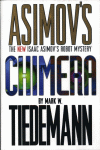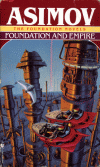Tim Pratt recently won the 2007 Hugo Award for best short story with Impossible Dreams. The story’s main character, Pete, is a huge movie buff that stumbles across a new video store in his neighborhood. He doesn’t seem to understand how he missed the store before, but ventures in and finds an odd selection of movies which he though had been canceled, or made by different directors with different actors. What follows is an interesting commentary on movies which either were never made, were lost, or simply done differently. This is a truly awesome story with an excellently planned ending. It was a pleasure to read from start to finish. From the writing it either the author is a huge movie buff or his writing is so good that you’d never even suggest he wasn’t passionate about movies. Visit the link above and read the full story at Asimov’s Science Fiction.
Impossible Dreams by Tim Pratt
Related Post
Flatland by Edwin A. AbbottFlatland by Edwin A. Abbott
I’ve been meaning to read Flatland by Edwin A. Abbott for some time now. I’ve seen it lying around the house here and there for many years. My wife actually acquired this book as part of her required reading for a “Sensation and Perception” course in college. I ran across it again when packing up my Asimov collection to bring up to my sister in Minneapolis. It was a short read, which was refreshing after some of the longer books I’ve been tackling recently. (more…)
Foundation and Empire by Isaac AsimovFoundation and Empire by Isaac Asimov
Foundation and Empire is broken up into two longer stories, rather than five shorter ones that appeared in Foundation. The first story, The General, begins almost 200 years after the Foundation was established on Terminus. The second story, The Mule, takes place just over 300 years into the Foundation Era. I think I liked this book more because the stories were longer and the character development was a bit deeper. Also, it seemed that the action picked up noticeably compared to the last book. (more…)
Asimov’s Chimera by Mark W. TidemannAsimov’s Chimera by Mark W. Tidemann

Chimera opens up with a flashback to twenty-five years ago to the scene kidnapping of twenty babies from a hospice center. Back at present day, Coren Lanra, security chief for Rega Looms at DyNan Corporation, is working on tracking the actions of Rega’s daughter Nyom. Unfortunately, Nyom ends up dead along with all those she was attempting to help smuggle to the settler colony Nova Levis. The only possible clue lies in the brain of a robot that locked up while trying to save the passengers. Surprisingly, Ariel and Derec are encouraged to help Coren in his investigation by Ambassador Setaris Coren is forced to follow his own leads while Derec attempts to recover the failed robot’s memories. The following investigation eventually reveals the link to the kidnappings, with danger at almost every turn. (more…)

